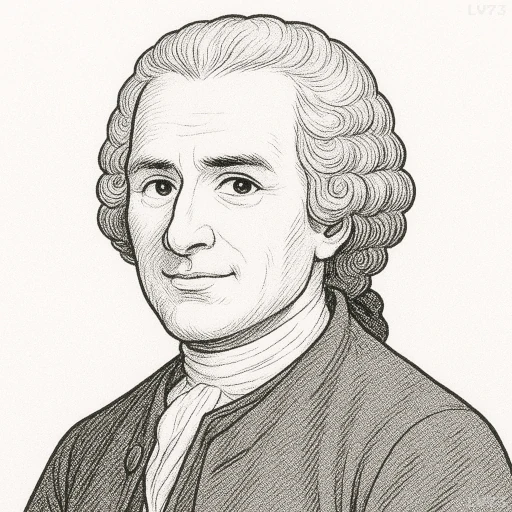“Although modesty is natural to man, it is not natural to children. Modesty only begins with the knowledge of evil.”

- June 28, 1712 – July 2, 1778
- Born in Geneva
- Philosopher, political philosopher, writer, composer
table of contents
Quote
“Although modesty is natural to man, it is not natural to children. Modesty only begins with the knowledge of evil.”
Explanation
In this quote, Jean-Jacques Rousseau discusses the development of modesty in humans, specifically its emergence as a result of self-awareness and the understanding of social norms. Rousseau argues that while modesty is an inherent trait in adults, it is not something naturally found in children. For Rousseau, modesty arises when an individual becomes conscious of social judgment and the concept of evil or immorality, which children, in their innocence, do not yet understand. The idea is that children, unburdened by the complexities of societal expectations, do not instinctively feel the need to hide their impulses or desires.
Rousseau’s view on modesty is rooted in his broader philosophy on human development. In his influential work Emile, or On Education, he stresses that children should be allowed to grow up unspoiled by society’s artificial values. According to Rousseau, children are naturally good, and the corruptions of modesty and shame are imposed upon them by the moral and societal expectations that come with age and knowledge. Modesty, in this sense, is a form of social conditioning that only begins when a child gains an understanding of concepts like good and evil, which are inherently linked to the judgment of others.
In contemporary contexts, this idea can be examined through modern psychological theories about child development. It is widely recognized that children do not develop a full sense of modesty until they are capable of understanding social norms and the concept of privacy. Rousseau’s quote may resonate in modern debates about education and socialization, where the question arises as to when and how children should be introduced to the concepts of modesty, morality, and self-awareness. His perspective challenges us to consider the influence of society on the natural development of the child, urging a reflection on how and when children begin to internalize moral and social constructs.
Would you like to share your impressions or related stories about this quote in the comments section?




